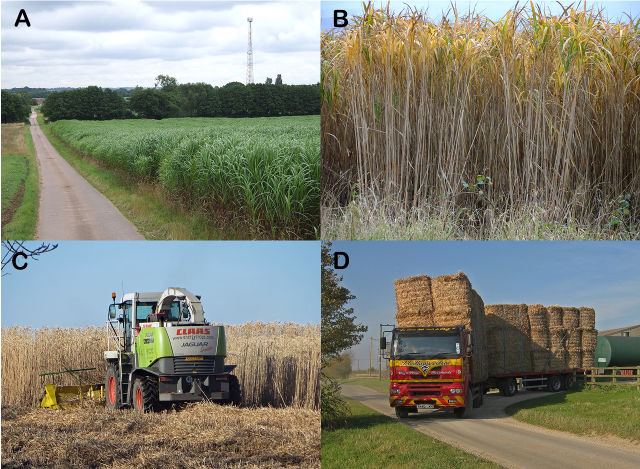Miscanthus Biomass Yields: Difference between revisions
Jump to navigation
Jump to search
(Moved some stuff around) |
(Minor Text Formating Fix) |
||
| Line 22: | Line 22: | ||
=External Links= | =External Links= | ||
* | *[https://en.wikipedia.org/wiki/Miscanthus_giganteus The Wikipedia Page on Miscanthus giganteus] | ||
*[http://bioenergy.ornl.gov/papers/miscanthus/miscanthus.html The Bioenergy Page on this] | *[http://bioenergy.ornl.gov/papers/miscanthus/miscanthus.html The Bioenergy Page on this] | ||
[[Category:Biofuel]] [[Category:Food and Agriculture]] | [[Category:Biofuel]] [[Category:Food and Agriculture]] | ||
Revision as of 09:39, 2 January 2021
Basics
- Also Known as Elephant Grass
- S Crop with multiple uses, such as biofuels, bedding, cover crop and for plastics and nanocellulose
- One acre of it yields 3 tons dry biomass per acre under typical US agricultural practices
- 'Per hectare, this dry matter yield has an energy equivalent of 36 barrels of crude oil or about 10000 liters of fuel oil
- Miscanthus does not require fertilizer, and is insensitive to diseases
- It does not need to be replanted every year (once planted, it lasts 20 years).
Processing
Miscanthus can be processed to (cellulosic) ethanol. It can also be turned into other biofuels via Gassification and/or Pyrolysis
Open Source Equipment Needs
- Tractor (tilling, harvesting)
- Special implements for harvesting
- Baling machine
